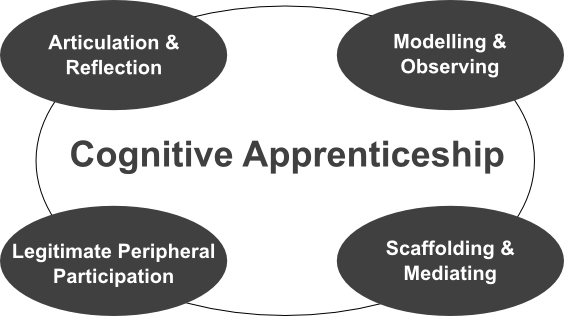A Cognitive Apprenticeship Approach to Student and Faculty Online Learning and Teaching Development: Enculturing Novices into Online Practitioner Environments and Cultures in Higher Education
In a previous article, How prepared are learners for elearning? I wrote about the difficulties in identifying if learners are “ready” to study online and some suggestions for possible ways to identify the necessary knowledge, skills, and abilities for successful online learning.
I believe it would be unethical to identify or even diagnose such issues, thereby rejecting some learners who may otherwise be capable of thriving in online learning environments, without exploring some potential ways to address those issues. I’ve just created a small subsection on this blog that outlines a proposal for higher and further education oriented institutions and organisations that may help both learners and teaching practitioners involved in online communities of inquiry. It covers the following areas:
- Online Cognitive Apprenticeship Model
- Programme Aims and Objectives
- Organisational Structure and Context
- Programme Participants
- The Cognitive Apprenticeship Model
- Example Activities/Tasks
- Programme Delivery and Integration
- Evaluation and Assessment
- Participant Support: Necessary and Sufficient Conditions for Psychological Change
- The Programme as an Agent of Change
- References
Keywords: situated cognition, cognitive apprenticeship, meta-cognitive skills, enculturation, practitioner culture, legitimate peripheral participation, authentic tasks, reflective practice, online academic practice
PDF Version
![]() There’s also a PDF version of the entire proposal from my Athabasca University Academia.edu account.
There’s also a PDF version of the entire proposal from my Athabasca University Academia.edu account.
